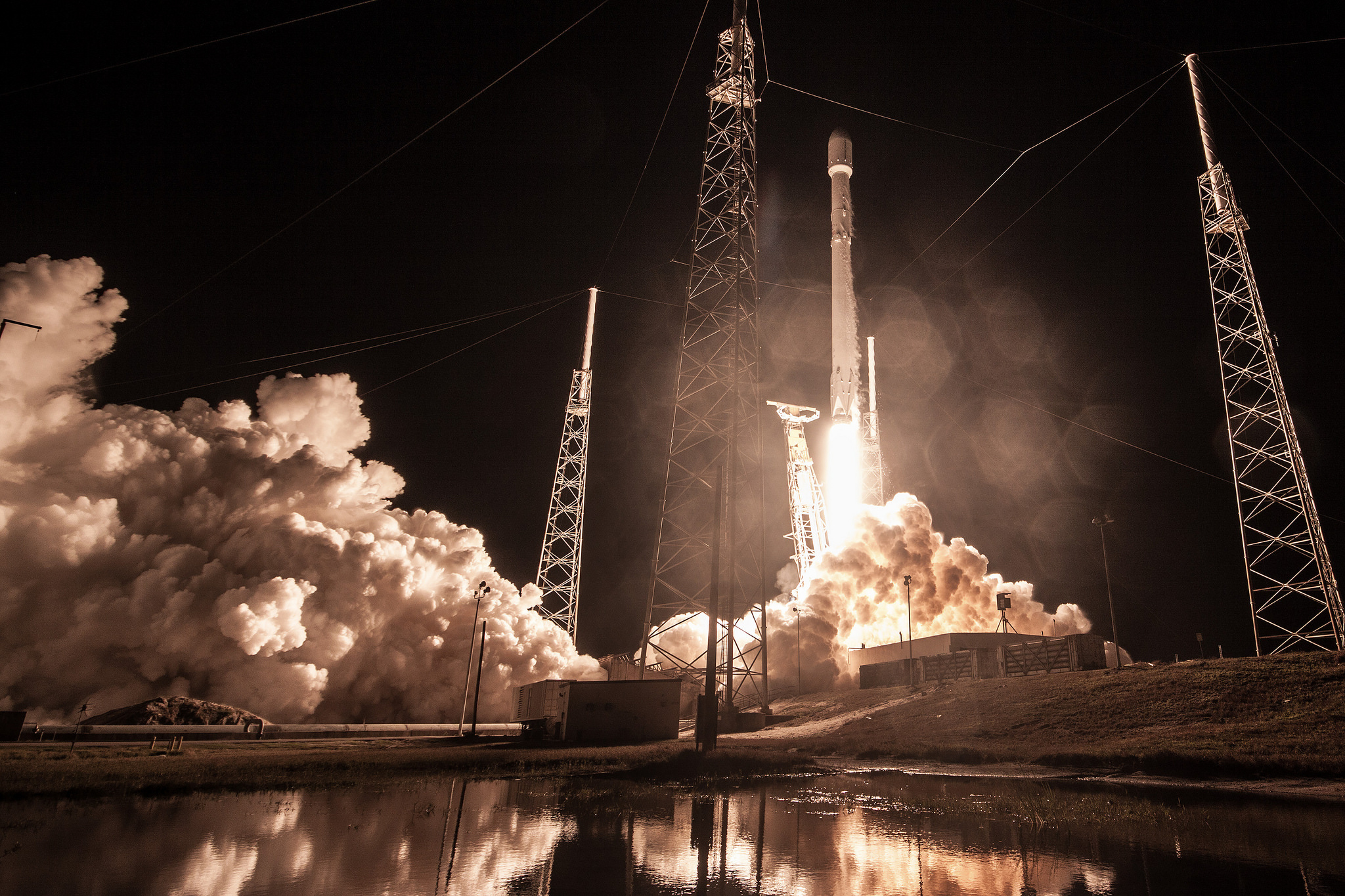SpaceX Delays GovSat-1 Launch to Replace Falcon 9 Rocket Sensor

SpaceX called off the planned launch of a Falcon 9 rocket on Tuesday (Jan. 30) to allow engineers time to swap out a sensor on the booster, company representatives said.
The Falcon 9 rocket was scheduled to launch the GovSat-1 communications satellite Tuesday afternoon from a SpaceX launch pad at Cape Canaveral, Florida. The launch will now take place no earlier than Wednesday (Jan. 31), SpaceX representatives said. If that Wednesday launch happens, it will occur between 4:25 p.m. EST and 6:46 p.m. EST (2125-2346 GMT).
"Standing down for today. Team is going to replace a second stage sensor," SpaceX representatives said in a Twitter update.
SpaceX is launching GovSat-1 on a Falcon 9 rocket that contains a used first-stage booster that previously launched a U.S. spy satellite into orbit in May 2017. The second stage, which is used in the last leg of the launch to place GovSat-1 in orbit, is new. SpaceX does not plan to recover the used Falcon 9 first stage via a landing as it has in the past.
As its name suggests, GovSat-1 is the first GovSat, a joint venture by the gorvernment of Luxembourg and the satellite-operating company SES. The Orbital ATK-built satellite carries anti-jamming features and encrypted telemetry and control systems to provide secure communication services, according to a SpaceX mission profile.
The GovSat-1 mission is the second spaceflight of 2018 by SpaceX following the Jan. 7 liftoff of the secret Zuma spacecraf for the U.S. government.
SpaceX is also preparing for the much-anticipated debut launch of its new Falcon Heavy rocket. That test flight is expected to launch no earlier than Feb. 6 from Launch Pad 39A at NASA's Kennedy Space Center in Cape Canaveral.
Get the Space.com Newsletter
Breaking space news, the latest updates on rocket launches, skywatching events and more!
Email Tariq Malik at tmalik@space.com or follow him @tariqjmalik and Google+. Follow us @Spacedotcom, Facebook and Google+. Original article on Space.com.
Join our Space Forums to keep talking space on the latest missions, night sky and more! And if you have a news tip, correction or comment, let us know at: community@space.com.

Tariq is the Editor-in-Chief of Space.com and joined the team in 2001, first as an intern and staff writer, and later as an editor. He covers human spaceflight, exploration and space science, as well as skywatching and entertainment. He became Space.com's Managing Editor in 2009 and Editor-in-Chief in 2019. Before joining Space.com, Tariq was a staff reporter for The Los Angeles Times covering education and city beats in La Habra, Fullerton and Huntington Beach. In October 2022, Tariq received the Harry Kolcum Award for excellence in space reporting from the National Space Club Florida Committee. He is also an Eagle Scout (yes, he has the Space Exploration merit badge) and went to Space Camp four times as a kid and a fifth time as an adult. He has journalism degrees from the University of Southern California and New York University. You can find Tariq at Space.com and as the co-host to the This Week In Space podcast with space historian Rod Pyle on the TWiT network. To see his latest project, you can follow Tariq on Twitter @tariqjmalik.









